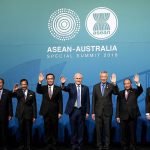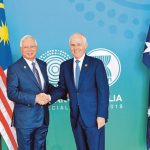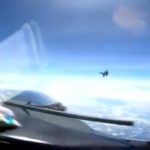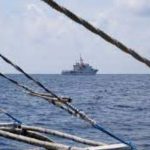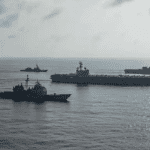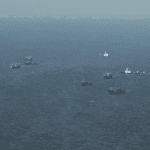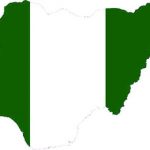Australia and Southeast Asian countries concluded a three-day summit on Wednesday, asking for moderation in the disputed South China Sea and a long-term cease-fire in the Gaza Strip.
Australia convened a meeting with the Association of Southeast Asian Nations (ASEAN) in Melbourne to commemorate the bloc’s 50th anniversary, despite ongoing disagreements among the ten members over China’s aspirations to expand its diplomatic and military presence in the area.
Australia and ASEAN issued a joint statement calling for a ‘rules-based’ Indo-Pacific order as Beijing seeks to strengthen its influence in the South China Sea.
A spokesperson for the Chinese foreign ministry said that the situation in the South China Sea was generally stable and China’s position on the disputed area was consistent and clear.
Meanwhile, China’s response came as the Philippines on Tuesday summoned Beijing’s deputy chief of mission in Manila to protest at what it called “aggressive actions” by Chinese naval forces against a resupply mission for Filipino troops stationed on a South China Sea shoal.
Beijing claims practically the entire South China Sea, which transports more than $3 trillion in ship-borne commerce each year and is a significant source of friction with the Philippines.
According to the report, both countries have been embroiled in a territorial dispute despite the Permanent Court of Arbitration’s 2016 finding that China’s claims lacked legal substance. Beijing rejects the decision.
The joint statement also expressed worry over the ‘dire’ humanitarian situation in Gaza and called for the release of captives held in the Israel-Hamas conflict.
Australia and ASEAN issued a joint statement calling for a ‘rules-based’ Indo-Pacific order as Beijing seeks to strengthen its influence in the South China Sea.
ASEAN includes Muslim-majority nations, Malaysia, Indonesia, and Brunei, while Australia is a strong backer of Israel, although it has previously called for a ceasefire and been critical of the level of casualties.




